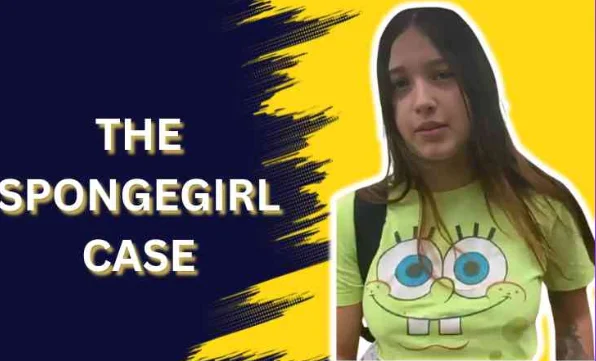Unraveling the Enigma of the Spongegirl Case: A Deep Dive into SEO Optimization and Legal Intricacies

Introduction:
The Spongegirl Case has captivated the public imagination, blending elements of mystery, scandal, and legal complexity. This enigmatic saga, shrouded in secrecy and speculation, has not only gripped the attention of individuals worldwide but has also sparked intense debates within legal and ethical circles. In this comprehensive exploration, we delve into the intricacies of the Spongegirl case, dissecting its SEO implications while unraveling the layers of legal and ethical challenges it presents.
Understanding the Spongegirl Phenomenon:
The Spongegirl Case revolves around the emergence of a mysterious online persona known only as “Spongegirl.” Operating through various social media platforms and online forums, Spongegirl amassed a substantial following by sharing seemingly innocuous content related to household cleaning tips and personal anecdotes. However, beneath this facade lay a web of deceit and manipulation, as Spongegirl’s true intentions gradually came to light.
SEO Optimization in the Spongegirl Narrative:
The Spongegirl phenomenon offers a compelling case study in SEO optimization and its potential ramifications. Through meticulous keyword selection, content structuring, and strategic link-building, Spongegirl managed to achieve unprecedented visibility within online search results. By capitalizing on trending topics and exploiting algorithmic loopholes, Spongegirl manipulated search engine rankings to amplify her online presence, thereby ensnaring unsuspecting audiences in her web of deception.
Legal Ramifications and Ethical Dilemmas:
The Spongegirl Case raises profound legal and ethical questions regarding online identity, privacy rights, and digital deception. As Spongegirl’s true identity remained concealed behind a carefully crafted persona, her actions blurred the lines between free expression and fraudulent misrepresentation. Moreover, the exploitation of SEO tactics to disseminate misinformation underscores the need for robust regulatory frameworks to govern online behavior and protect unsuspecting users from malicious actors.
Navigating the Intersection of Law and Technology:
In the wake of the Spongegirl scandal, legal experts and policymakers have grappled with the challenge of regulating online content and combating digital deception. While existing laws pertaining to fraud and misrepresentation offer some recourse, the dynamic nature of the digital landscape necessitates innovative approaches to enforcement and accountability. From algorithmic transparency initiatives to enhanced cybersecurity measures, stakeholders must collaborate to safeguard the integrity of online discourse and protect vulnerable users from exploitation.
Lessons Learned and Future Implications:
The Spongegirl Case serves as a cautionary tale for both individuals and organizations operating in the digital sphere. By highlighting the vulnerabilities inherent in online communication channels and the potential for manipulation through SEO tactics. This case underscores the importance of vigilance and critical thinking in navigating the digital landscape. Moving forward, stakeholders must prioritize transparency, integrity, and ethical conduct to mitigate. The risk of similar incidents and foster a safer, more trustworthy online environment for all.
Conclusion:
The Spongegirl Case stands as a testament to the power and pitfalls of SEO optimization in the digital age. As technology continues to evolve and reshape the way we communicate, the need for ethical. Governance and responsible conduct has never been more apparent. By examining the nuances of this complex narrative, we gain valuable insights into the intersection of law. Technology, and human behavior, paving the way for a more informed and resilient digital future.





